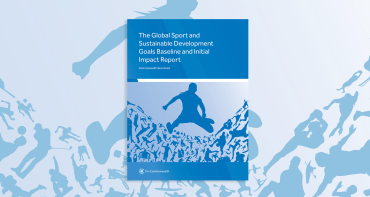Community members must understand that socio-economic circumstances are not caused by sorcery - Justin Bahunga
Poverty and misfortune have been cited as the leading factors in fuelling accusations of witchcraft and sorcery against women and children in Africa and the United Kingdom.
Justin Bahunga of Africans Unite Against Child Abuse (AFRUCA) said that belief and fear in witchcraft is a result of socio-economic circumstances and has placed the most vulnerable in communities - women and particularly children - at risk.
Speaking at the Commonwealth Secretariat on 8 December Mr Bahunga said: “The level of civilisation is determined by how much you can protect the most vulnerable in society ... women are the heartbeat of society.
“This is a human rights issue and each of us have to defend against it.”
Following a screening of ‘The Witches of Gambaga’, a documentary about a community of women who were condemned as witches in Northern Ghana, Mr Bahunga said it is important that parents and community members understand that socio-economic circumstances are not caused by spiritual manifestations such as sorcery.
The documentary follows the lives of women who have been accused of witchcraft and have endured communal and domestic violence as a result of traditional religious beliefs that demonise some women.
Mr Bahunga said cases of witchcraft have been recorded in the UK where children have been abused because of superstitious beliefs.
AFRUCA is working with parents, social workers and policy-makers to deal with the anxiety in communities in cases of witchcraft and sorcery in the UK and in Africa.
The screening of the film, is part of a week of activities organised by the Secretariat’s Human Rights Unit to mark World Human Rights Day on 10 December 2011.
The theme of the week’s activities is ‘Women Human Rights Defenders: Agents of Change within Commonwealth Communities’.
The 2011 Commonwealth Day theme ‘Women as Agents of Change’ celebrates women whose work has made a positive difference to the lives of others, and emphasises the Commonwealth message that by investing in women and girls we can accelerate social, economic and political progress in our member states.
The week started with a testimony on the life of Ugandan human rights defender Marjorie Nshmere Ojule, who fled her homeland and sought asylum in the United Kingdom as a result of her activism work.
On 6 December an art exhibition at the Secretariat, featuring the work of New Zealand's Rosanna Raymond and Cameroonian Shiri Achu, depicted how art can be used to empower and encourage women to stand up for their rights.
On Friday, 8 December, the Secretariat will host a cultural event celebrating the 63rd birthday of the Universal Declaration of Human Rights and the brave women across the Commonwealth who fight for positive change on a daily basis. This event will be opened by the Commonwealth Secretary-General, Kamalesh Sharma. On 9 December the Secretariat will host a roundtable discussion focused on the issue of forced marriage.


